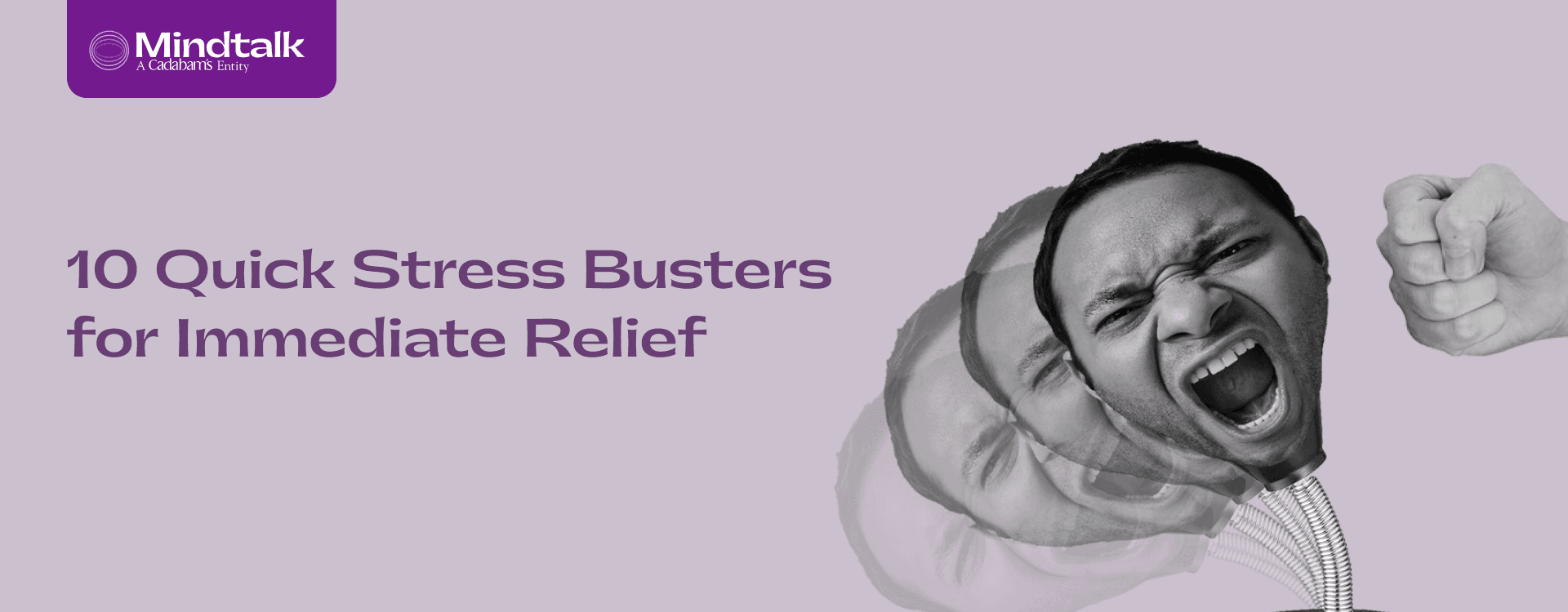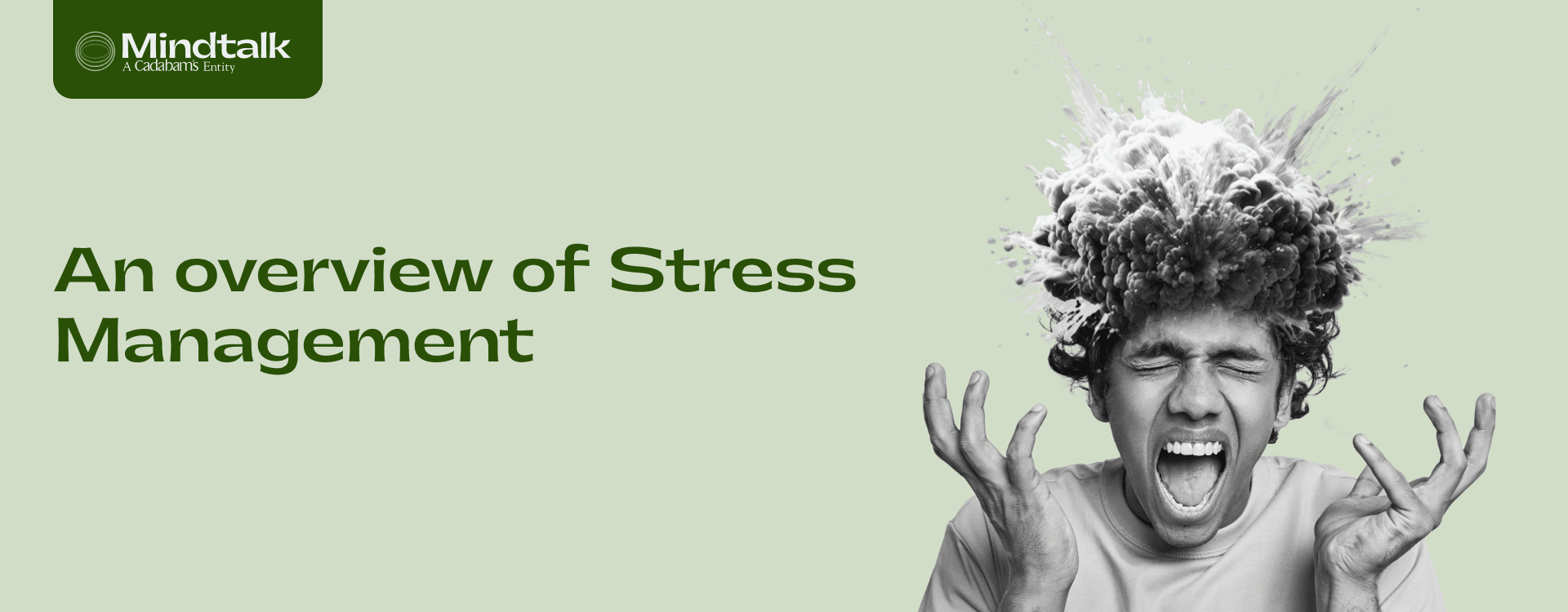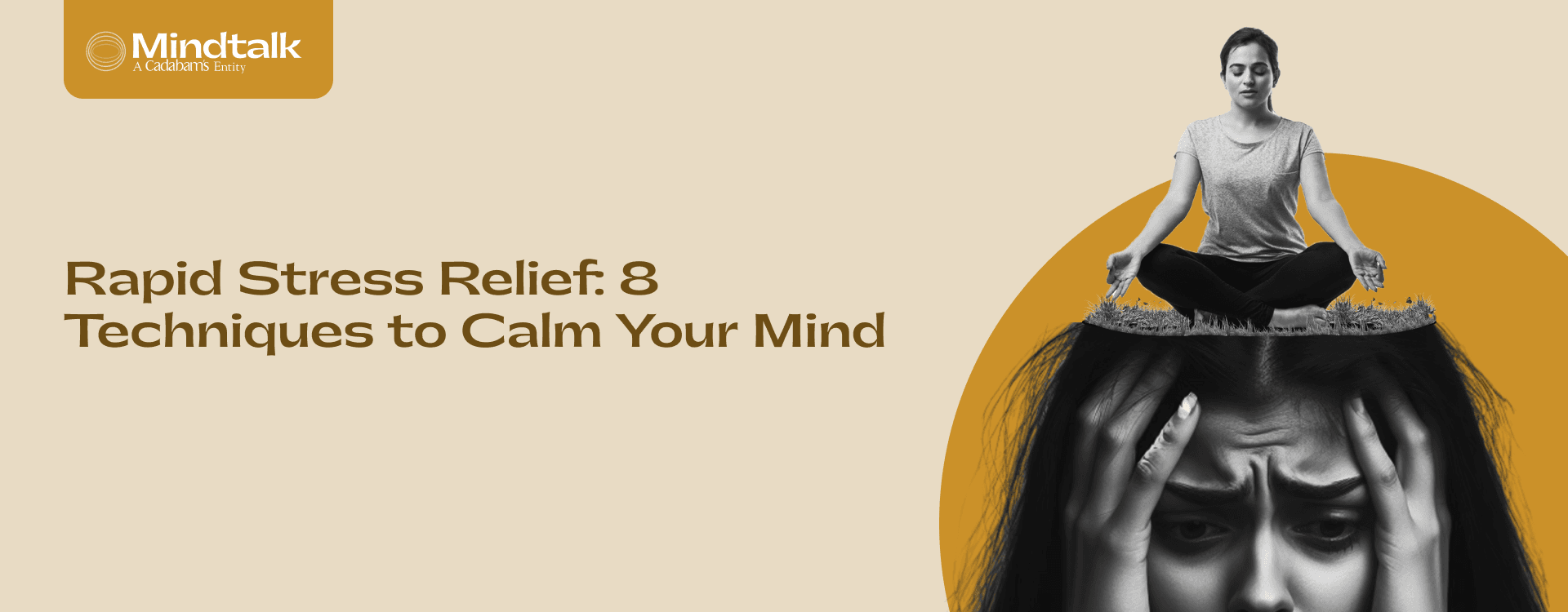Conquering Guilt: Strategies For Overcoming Guilt
We have all felt guilt at some point in our lives. Defined as a sense of remorse or responsibility for one’s words or actions, shame plays a significant role in our lives. It can occur when you think you have harmed or hurt someone, made a mistake, or gone against your beliefs. While the nature and intensity of guilt may be subjective to certain situations in life, its impact on your well-being is not. Guilt can have both positive and negative repercussions. Taken in a positive light, guilt can lead to learning and growth. But what happens when guilt begins eating away at you, disrupting your daily life and taking away from your experiences? How, then do you overcome it and move on? Well, we have a few strategies below to help you.

Understanding Guilt
Guilt is thought to be a learned social emotion that humans seem to have picked up for better interaction with people around them. Studies have also shown that guilt is also a tool used to improve cooperation in a group.
The crucial thing about guilt is that it can arise out of situations that may or may not be directly related to you. This makes it easier for guilt to affect you even when you may not be responsible for a certain situation.
The Emotional Power Of Guilt
Guilt has a massive impact on your health, interpersonal relationships, and your perception of yourself. At its core, it is governed by the moral code that you live by, the societal norms you have grown up with, and other environmental cues.
Guilt can act as a feedback loop and lead to beneficial actions like apologizing, making amends, and positive behavioral changes. However, guilt can also have profoundly negative consequences for you.
Carrying around unaddressed feelings of guilt can lead to feelings of anxiety and depression. It can stop you from forgiving yourself for a mistake and moving on. In certain situations, you could also be guilted into certain decisions.
Differentiating Guilt From Shame
While guilt and shame are related to each other, they are distinct in the way people experience them. They also play significantly different roles in your life. Guilt arises from the awareness of having done something wrong or causing harm, focusing on the specific action and its consequences.
It is closely linked to remorse and the desire to make amends; the individual recognizes the lapse in their behavior as opposed to their character. On the other hand, shame is a more pervasive feeling that involves a painful scrutiny of the self rather than the action. When people feel shame, they internalize the wrongdoing to mean there is something fundamentally flawed or unworthy about themselves.
Types Of Guilt
Guilt is a complex emotion that can affect you in different ways. The way it affects you depends on your circumstances in life, your thoughts, and your actions. The different types of guilt include:
Cognitive Guilt
This type of guilt is experienced when you feel that you have violated your code of ethics or the standards you hold yourself up to.
Emotional Guilt
This type of guilt is when you feel remorse for your thoughts or actions. It could be about your interactions with another person or yourself.
Behavioral Guilt
Behavioral guilt is what motivates you to make amends for your actions or words. It also helps make changes to your future behavior, resulting in personal growth.
Existential Guilt
Pertains to a broader sense of responsibility for others' welfare or for societal issues beyond one's immediate control.
Causes Of Guilt
There are multiple reasons why a person may experience guilt. Guilt can come along at any time, ranging from life circumstances to societal influences. The causes of guilt can be understood as listed below.
Childhood Experiences
Childhood is an important part of everyone’s life. A lot of how you experience life is dependent on your growing years. Early childhood experiences can influence the incidence and severity of guilt a person experiences.
Growing up with parents or caregivers who enforced strict rules or punished you vigorously could lead you to carry a sense of guilt through to your adulthood. Even small transgressions could cause significant distress to you since you have been taught to regret them.
Such a piece of emotional baggage can shape your worldview and self-view, leading to a tendency to internalize blame for events beyond your control.
Cultural And Religious Influences
Especially in India, our lives and societies are governed by strong cultural and religious codes. These usually have a strict understanding of what is right and wrong. If you have grown up understanding and idolizing these codes of behavior, any small deviation from these prescribed behaviors can cause you significant distress.
This type of guilt is shared between a large group of people and can serve to improve social cohesion and cooperation. However, it can also lead to internal conflict, especially for people who want to grow out of such cultural and religious influences.
Social Pressures And Expectations
From the age of Sharma ji ka beta to the age of glamorous social media lives, India’s societal consciousness cuts through a wide spectrum. As social beings, there inevitably exists an element of societal pressure and expectation for everything we do.
From comparing your life to your neighbor’s to comparing it to the glitzy lives portrayed on social media, you can trap yourself into feeling remorse about your own life. Such remorse or guilt is purely born out of social pressures and expectations.
In rare cases, this can lead to personal growth and development, to attain a certain status that you associate with yourself. However, more often than not, it can lead you down a spiral of cyclical guilt and sadness.
What Are The Signs That Guilt Is Weighing You Down?
Rumination
Rumination is when you compulsively focus on the causes or consequences of any experience you have had. Especially when you are feeling guilty, there is a tendency to go over the same details of a certain event over and over again to figure out how it could have gone differently.
We cannot change the past, and ruminating over the past can disrupt our ability to live in the present. The mind becomes cluttered with "what ifs" and "if only," which can prevent healing and growth.
Anxiety
Anxiety can be debilitating, especially when brought upon by guilt or fear of guilt. When you are overwhelmed by guilt about any past actions or experiences, you tend to fear similar situations going forward.
Such nervous anticipation can activate your body’s fight or flight response, leading to an increase in heart rate, sweating, and restlessness. Such anxiety due to guilt can turn a harmless daily activity or experience into a gut-wrenching ride.
Low Self-Esteem
Persistent feelings of guilt, especially when left unaddressed, can lead to an eroded sense of self-worth. Constantly feeling guilty about a situation or event can leave you with a feeling that you are inherently wrong or unworthy. This feeling can then cascade into other facets of your life, causing unintended negative consequences.
Isolation
Feeling guilty can cause you to withdraw from others as a form of self-punishment or due to fear of judgment. You may avoid social interactions, believing that you don't deserve the company of others or fearing that your guilt will be apparent.
Isolation can exacerbate feelings of loneliness and can create a cycle where the lack of social support leads to increased guilt and further withdrawal.
Depression
Chronic guilt can be both a symptom and a cause of depression. If you are constantly burdened with guilt, there may be a pervasive sense of sadness, loss of interest in activities that you once enjoyed, and a general feeling of hopelessness.
The belief that one cannot atone for past actions can lead to a profound despair that could color one's view of the world and one's future, making it difficult to find joy or satisfaction in life.
Physical Symptoms
The psychological strain that guilt places can manifest physically in multiple ways. Guilt can cause difficulty in sleeping, changes in appetite, feelings of fatigue, and unexplainable aches or pains.
This could be because guilt activates your body’s stress responses, which, over time, can lead to a weakened immune system, making you more susceptible to illnesses or pain. Chronic stress can also lead to long-term issues such as heart disease or gastrointestinal problems, demonstrating the profound impact of emotional states on physical health.
Strategies To Overcome Guilt
Much like most things in life, guilt is also something that you can tackle. But how do you do it? With a strategy, of course. We’ve put together a small list of things that you can do to overcome your guilt. While these tips can help you, we would advise seeking professional assistance as well especially if guilt is affecting your daily life.
Self-Reflection
Sometimes, we get so caught up in the business of daily life that we forget to take some time out for ourselves. And if you’re carrying feelings of guilt about a certain situation, the speed at which daily life progresses can leave those feelings unaddressed, leading to other consequences.
Self-reflection, or taking time out to objectively examine why a certain situation is making you feel guilty, can be a great way for you to move on. Through reflection, you can understand your motivations, learn from your mistakes, and devise strategies to avoid repeating them. It's a process that fosters personal growth and can lead to more mindful decision-making.
Self-Compassion And Self-Care
Be kind to yourself. Easier said than done, we understand. But treating yourself with compassion is a significant step that can help you shed any feelings of unresolved guilt you are carrying around.
Engaging in self-care complements your self-compassion by helping you engage in activities.
Self-care complements this by engaging in activities that promote well-being and reduce stress, such as exercise, hobbies, or relaxation techniques.
Together, self-compassion and self-care can help alleviate the intensity of guilt by reinforcing your worth and the importance of self-forgiveness.
Self Acceptance And Forgiveness.
The act of acknowledging all the parts of yourself and accepting them is a major step in forgiving yourself and unburdening yourself from any guilt you may be carrying around. It's about understanding that your worth isn't defined by mistakes and that growth is always possible.
Setting Realistic Expectations
As you have read above, guilt could stem from failing to meet your own or others' expectations. Setting realistic expectations involves acknowledging your limitations and recognizing that it's impossible to please everyone or to be flawless.
It's about setting achievable goals and being reasonable about what can be accomplished. This strategy can reduce feelings of guilt by aligning your expectations with reality.
Mindfulness And Meditation
Mindfulness teaches individuals to observe their thoughts and feelings without judgment, which can provide a clearer perspective on the situation that caused the guilt. Meditation can offer a sense of peace and mental clarity, aiding in the emotional regulation needed to process and overcome guilt.
Communication And Apology
Open communication can be a powerful tool for resolving feelings of guilt, especially when the guilt involves others. Expressing your feelings, taking responsibility for your actions, and offering a sincere apology can help repair relationships and provide a sense of relief.
Emotional Support
Seeking emotional support from friends, family, or a supportive community can be incredibly helpful in overcoming guilt. Sharing your feelings with others can provide a sense of relief and may offer new perspectives on the situation.
Seeking emotional support can also counteract the isolation that often accompanies guilt. Such support provides validation, understanding, and encouragement. This could be crucial for you if you are struggling to forgive yourself and move forward.
The Impact Of Guilt On Mental Well-Being
Guilt can significantly impact mental well-being. Excessive guilt can lead to chronic stress, anxiety, and self-punishment, potentially spiraling into mental health disorders like anxiety or depression. Addressing and managing guilt is crucial for mental health, as unaddressed guilt can become a barrier to achieving a balanced and fulfilling life.
How Mindtalk Helps You To Overcome Guilt
If you’re constantly feeling guilty and it is constantly overwhelming your daily activities, you might want to explore professional help. Therapists and counselors at Mindtalk are trained to help you work through complex emotions and can provide strategies to cope with guilt. They can offer a non-judgmental space to explore the roots of your guilt and facilitate your journey toward healing.












